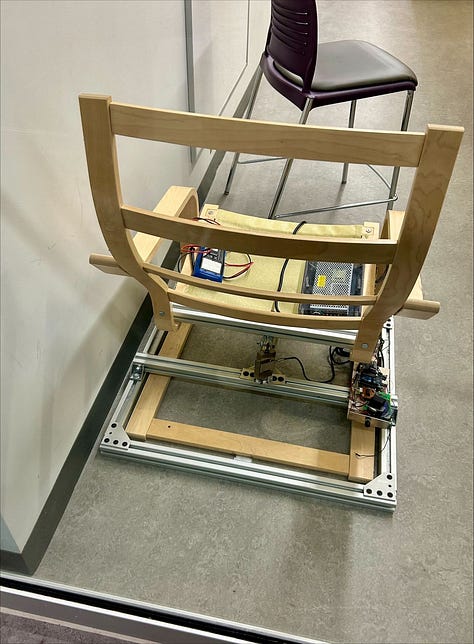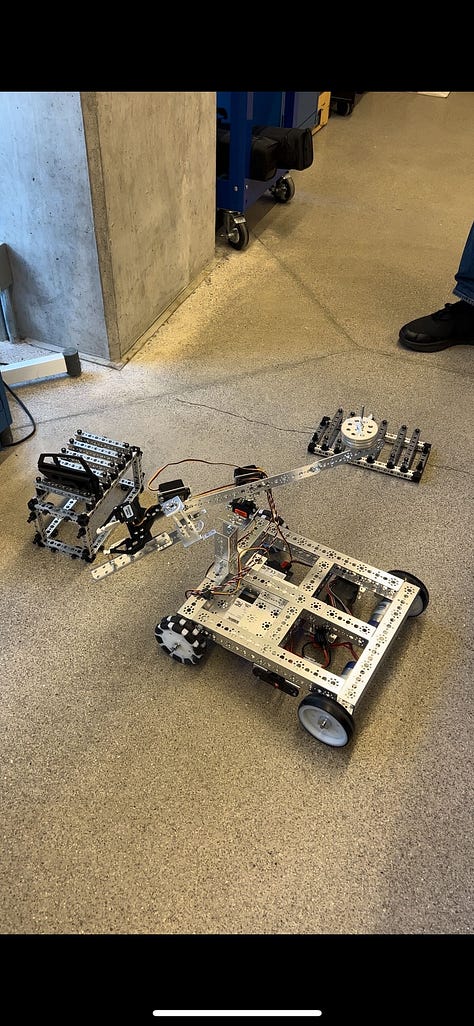Outlier Complex: Defeated. To-Do Lists: My New Villain Arc.
Summer was a weird combo of boss fights: exam delusion, learning to read/design PCBs, and… my to-do list. Here’s how it went down:
Retired the 1st year engineering student outlier complex, & finished my 2nd year of university
Got my first real taste of startup life + juggling it with uni
Developed serious beef with my to-do lists (a.k.a. the Napoleon conquering my daily life)









2nd year eng ✅, Outlier complex ❌
I just finished my 2nd year of engineering, and it feels so different from 1st year. Then, I remember ending exams completely numb—I had poured everything into studying the last 2-3 weeks just to fail (bc I didn’t study in the term lol). Feeling empty, after a literal fight-or-flight season: 7 AM – 3 AM grind, sometimes zero sleep, just to get bodied by the exam
Plus… Classic post-exam traditions: become one with my bed, cry-eat leftovers, doomscroll like it’s an Olympic sport, then pack my bags.
This term, I was kinda glad I got to experience that. It sounds unhealthy, but there’s something weirdly exciting about finals—pushing yourself and then reframing it as proof of how alive all that effort made me feel. See how far I can go for something I care about—or am terrified of.
Instead of seeing exams as a cruel judgment from a random set of questions, I started to view them as just a “show and tell” of what I know, like I used to in high school. That mindset shift—delusioning myself to seeing everything as just another potentially great experience, whether it goes great or terrible—has been so exciting.
This term, I finally felt like I’d caught up to my classmates. That’s mainly because I pushed out of the outlier complex. A victim mentality of sorts. It’s a super common first-year engineering feeling of being behind, like everyone else is smarter, more prepared, and already landing dream jobs or 80+ grades. It’s easy to put classmates on this god-like, untouchable pedestal without seeing all the techniques used, hidden hours, late nights, and tears behind it.
But pedestalizing others creates a kind of chasing energy—constantly sprinting after what others have, hoping it’ll validate you. It’s like running on someone else’s treadmill: no matter how fast you go, you’re still stuck in their lane.
The more I surround myself with people doing “impossibly big” things—whether it is a billionaire CTO, a spacetech VC I found on LinkedIn, an upper-year founding a legit startup, or a classmate pulling 90s—it clicked: they aren’t superhuman. Just people, with their own trade-offs, late nights, and failures. Once I stopped treating them like untouchable ideals—taking down the wall between me and them—it became so much easier to learn from them instead of chasing them.
Now, I just feel relief—2nd year is over, I survived, I get to choose what to do the next 4 months, and have no idea what I’m going to do tomorrow.
University x Startup life 🎯
I’ve been obsessed with big tech and deep tech startups since high school, so when I started working at Zoltux, I was over the moon excited.
A little background: Zoltux is a startup working toward making solar panels accessible to everyone, which means making setup installation so easy you don't need a contractor, and that reuses EV batteries of any type. ➔ instant solar pods
Plot twist: working at a hardware startup WHILE studying engineering is basically speed-running burnout. It's next-level time management skills compared to solo project building or university design teams.
Somehow, I didn’t think through that combination at all beforehand.
Some nights I ended up studying for an exam all night 7pm-6am ➔ writing the exam ➔ 20 minutes later, hopping on a call & trying to order a PCB from a very meticulous site for the evening ➔ just to do a 3-hour biochemistry lab & study more the next day.
It was way more self-learning than I expected—PCBs were the whole job, and I’d never touched one before. So far, I’ve learned to…
Became a pro at ordering PCBs from sites so picky that a misplaced pixel = they reject your order. Character building, I guess.
Troubleshoot inverters: understanding the circuitry by learning to read complex electrical schematics for the first time; playing the game of “which component burned/shorted?“; and figuring out how to get good signal readings by cutting up wires and using stuff in my kitchen.
How to use an ESP-s3, which is essentially a microcontroller that connects to Bluetooth and wifi
How to make a single battery management system (BMS) that can manage every battery type that’s plugged in—still on that one.
To-do lists destroyed my discipline 💀
At the start of uni, I was a religious to-do list maker. Daily, weekly, monthly, and even yearly lists. My daily one had five sections—school, work, projects, friends/family, and health—like a mini life-instructions manual every morning.
Turns out, that was exhausting, stressful. The excess structure sucked the fun out of my days because I already knew exactly how they’d look. So I toned it down… till near zero.
6 months free, life feels lighter. I’m less anxious, way more present, and I think my memory & drive actually improved—because you don’t really forget the things you want to do. Sure, I get distracted, but I inherently know what I gotta get done for the things I want.
The real problem? To-do lists became procrastination in disguise. Writing things down gave me that fake rush, gratification, of starting a task without actually doing anything. Talk without action is meaningless, and the most dangerous talk is justifying inaction to yourself.
Still, that doesn’t mean goals shouldn’t be written down; it makes them real. There’s a sweet spot: no structure left me lost and more susceptible to distraction. Lists are supposed to help organize actions to realize goals, desires, not scream daily orders at you like a drill sergeant. Especially when there is a lot to do, cough, cough … studying 4 months of university course content 2 days before the exam. As a former productivity nut, I have tried every tactic. And up till now, I’ve found less is more.
Now, I keep an even lighter version: a “brain dump” tab on my computer where I throw in things I remember throughout the day. Not rules—just reminders.
It is an aid rather than a list of orders that morning me wanted current me to accomplish.
Exams, interviews, visas, to-do lists… most things only feel terrifying when you give them too much power. These days, I just ask myself: what am I inflating, and how can I reframe it?
Something I’ve been thinking about 🧠
Is balance is real, or just a nice story we tell ourselves while one thing always secretly wins?
Lately I’ve been wondering if there’s actually a “sweet spot” between planning and spontaneity—or if one just always bulldozes the other. Right now, I’m in my spontaneity era, so if I leave it, I’ll report back from the other side.
From my experience chasing every productivity hack, tool, and framework in the name of balance, I’ve realized one thing: something will always take priority when it matters enough. Work-life balance isn’t this neat 50/50 split—at least not day-to-day. Some weeks it’s 45% work, 25% family/friends, 30% self-health. Other weeks, it completely flips. And that’s okay. Balance feels less like a daily equation and more like something you only see when you zoom out and examine life, desires, and fulfillment fully.
Into the future
Some things I’ll be up to for the rest of 2025:
Free from school for 8 months; I’m on a co-op work term!
Finish a one-size-fits-all battery management system as a Zoltux employee
Upgrading my electrical & mech skills: After submitting 600+ co-op applications for school, I realized there were lots of holes & missed skill-building opportunities in my old projects. So, I’m going back through some fuel cells and maglev motors.
Bye! 👋



